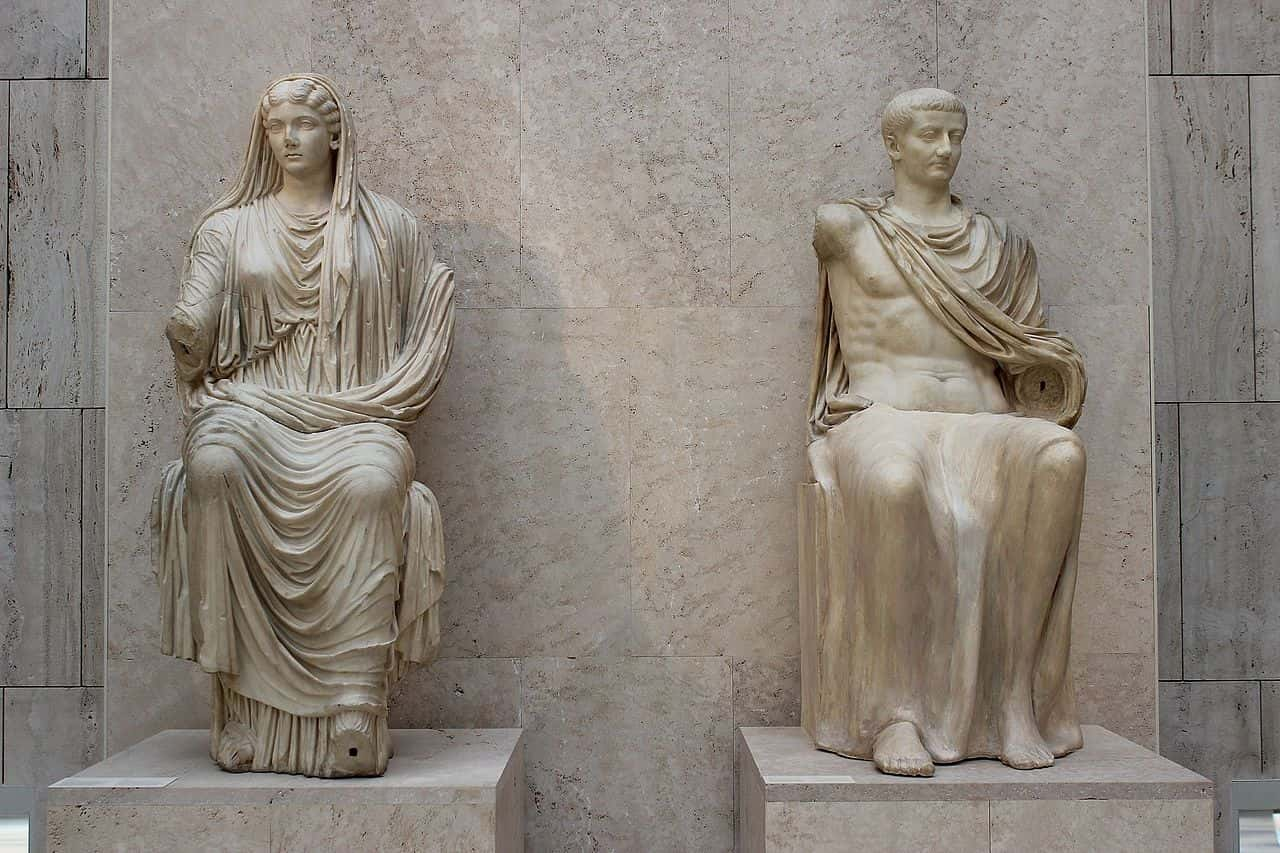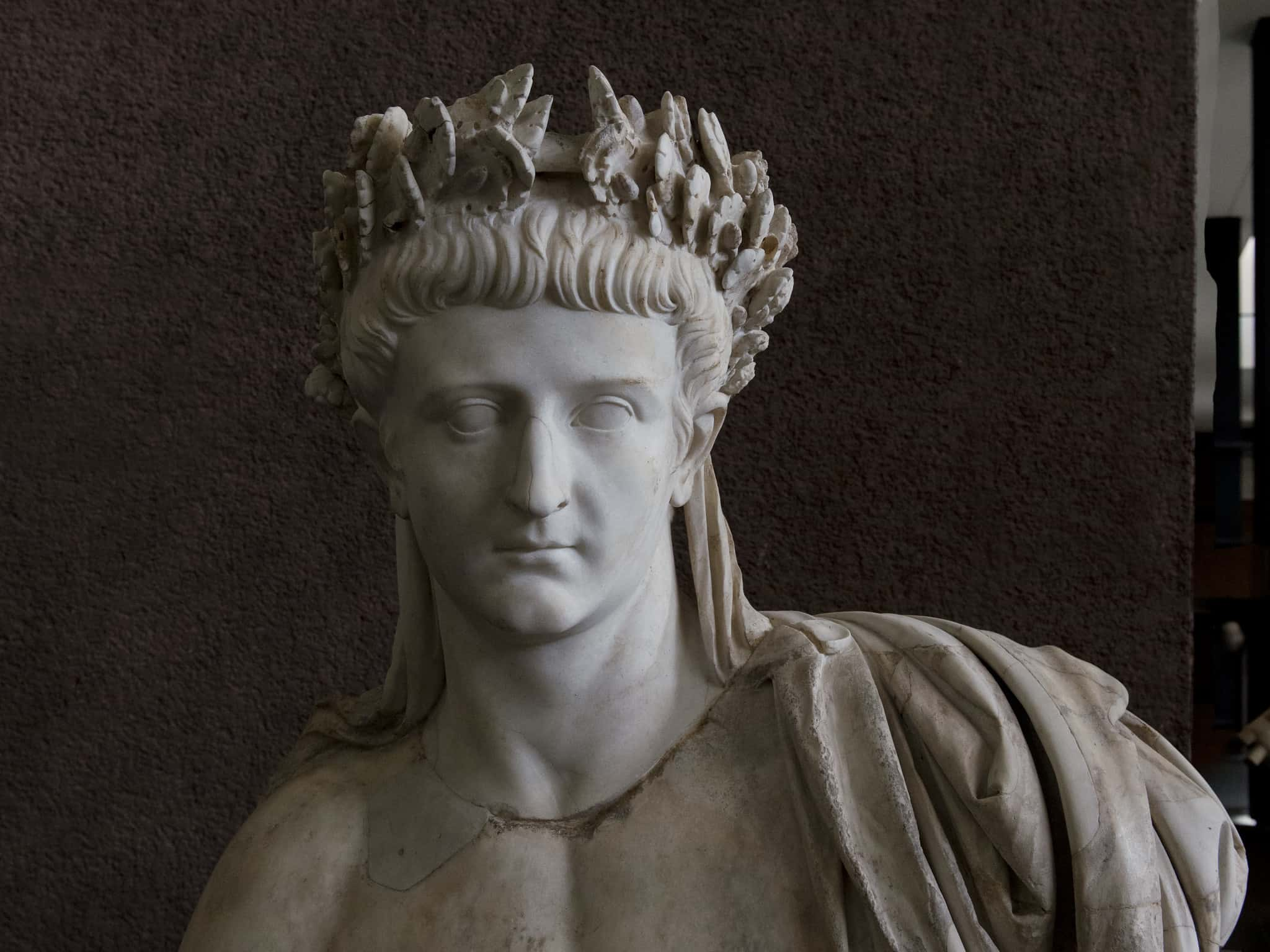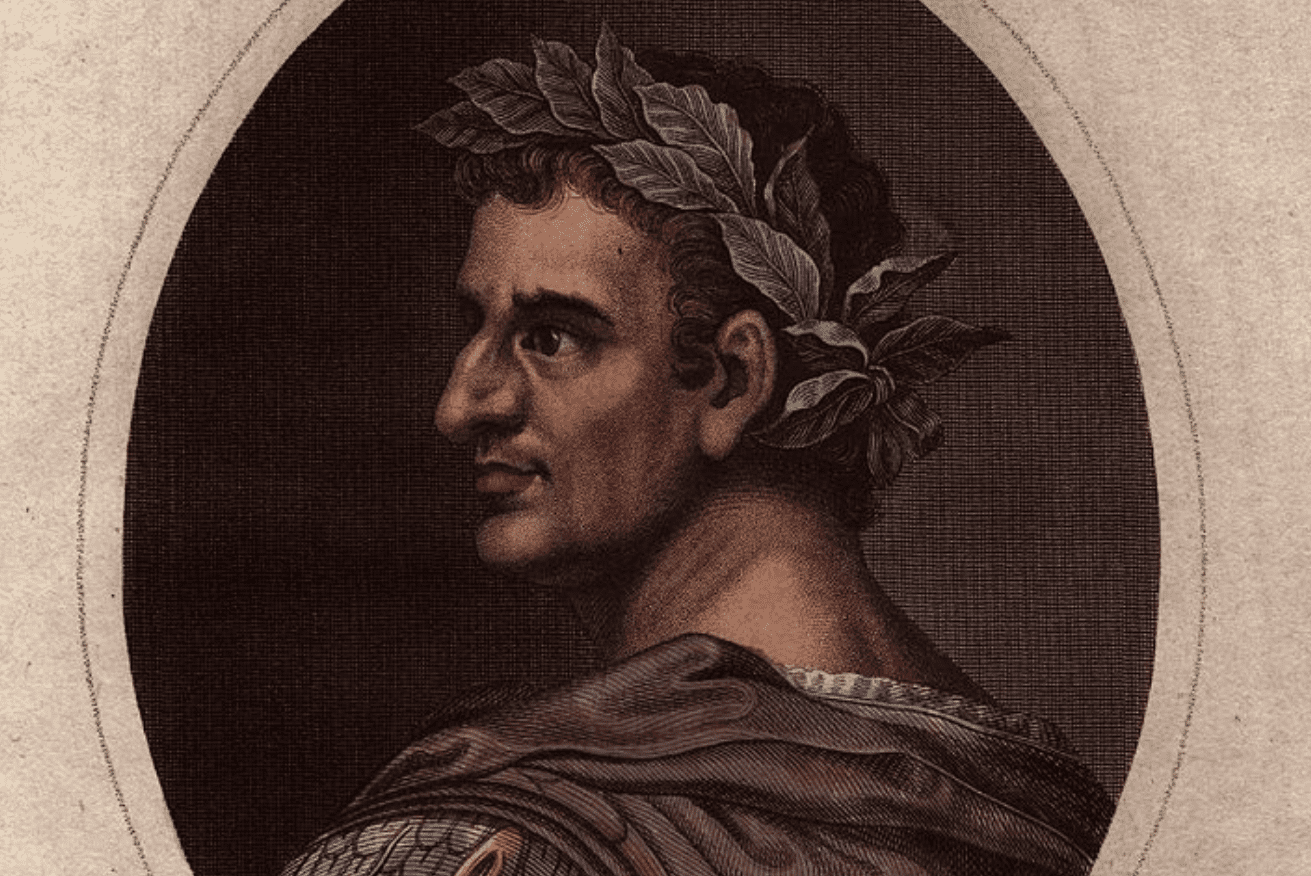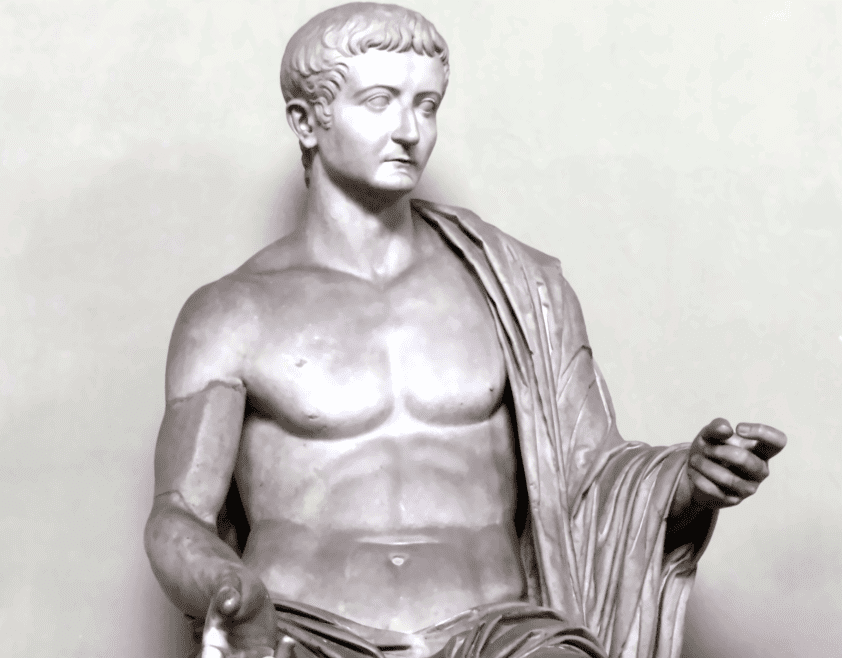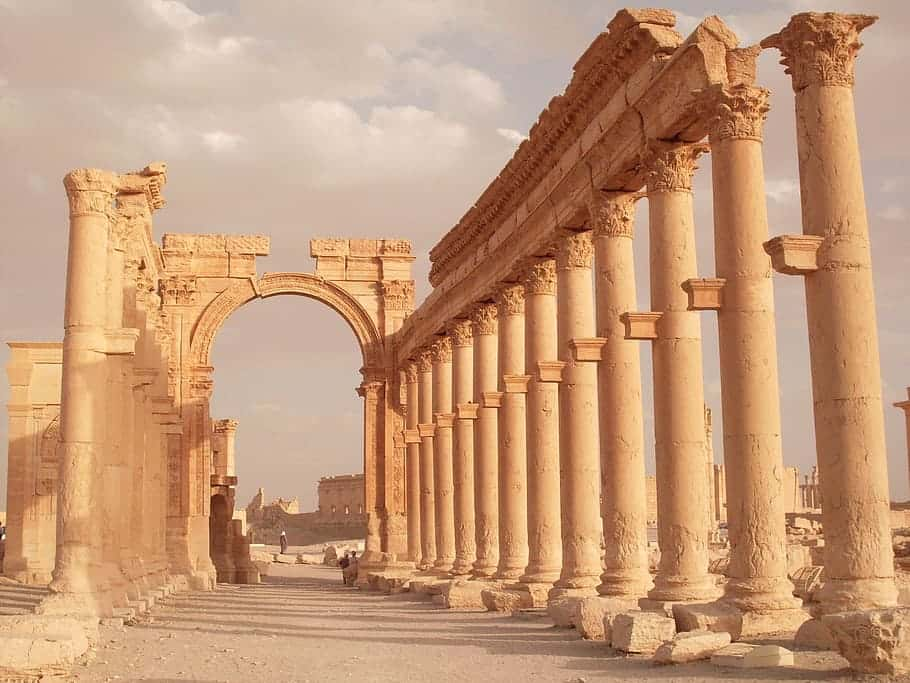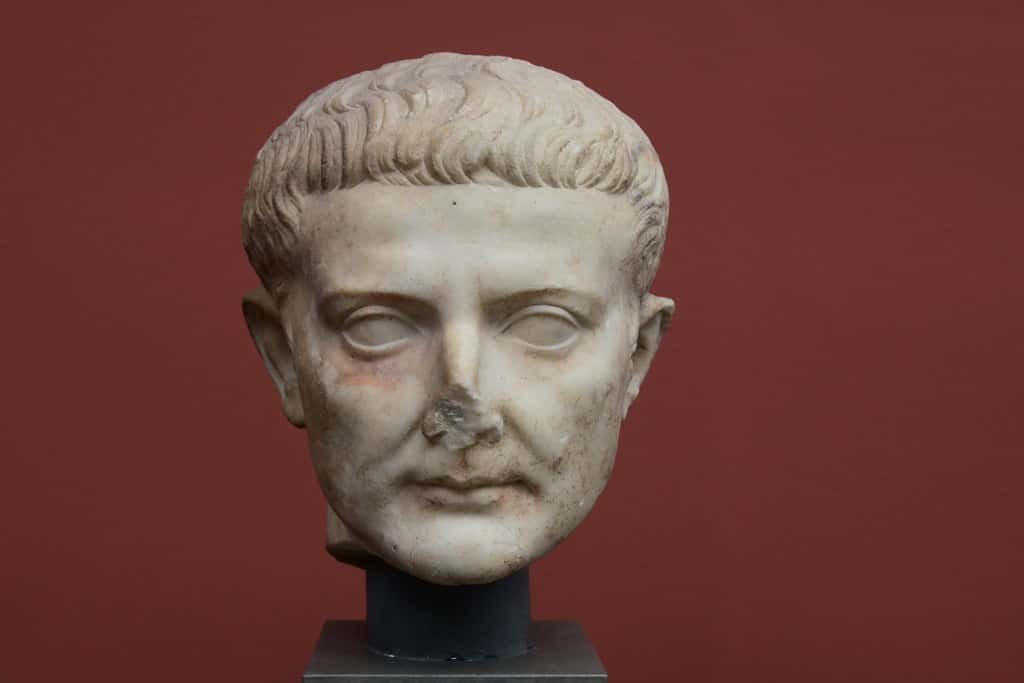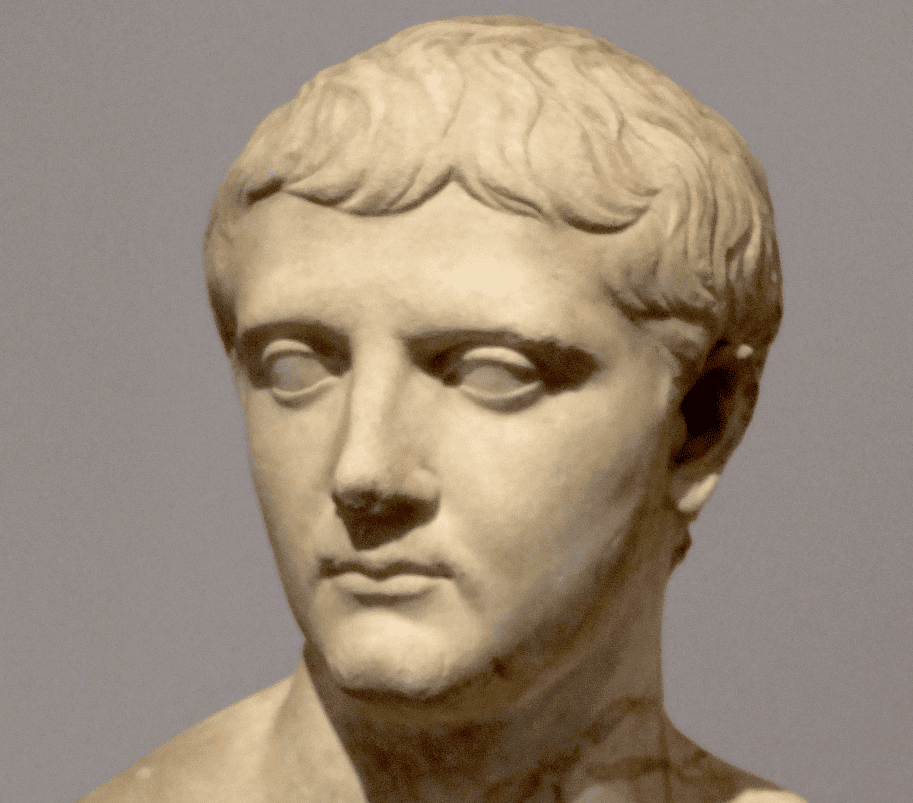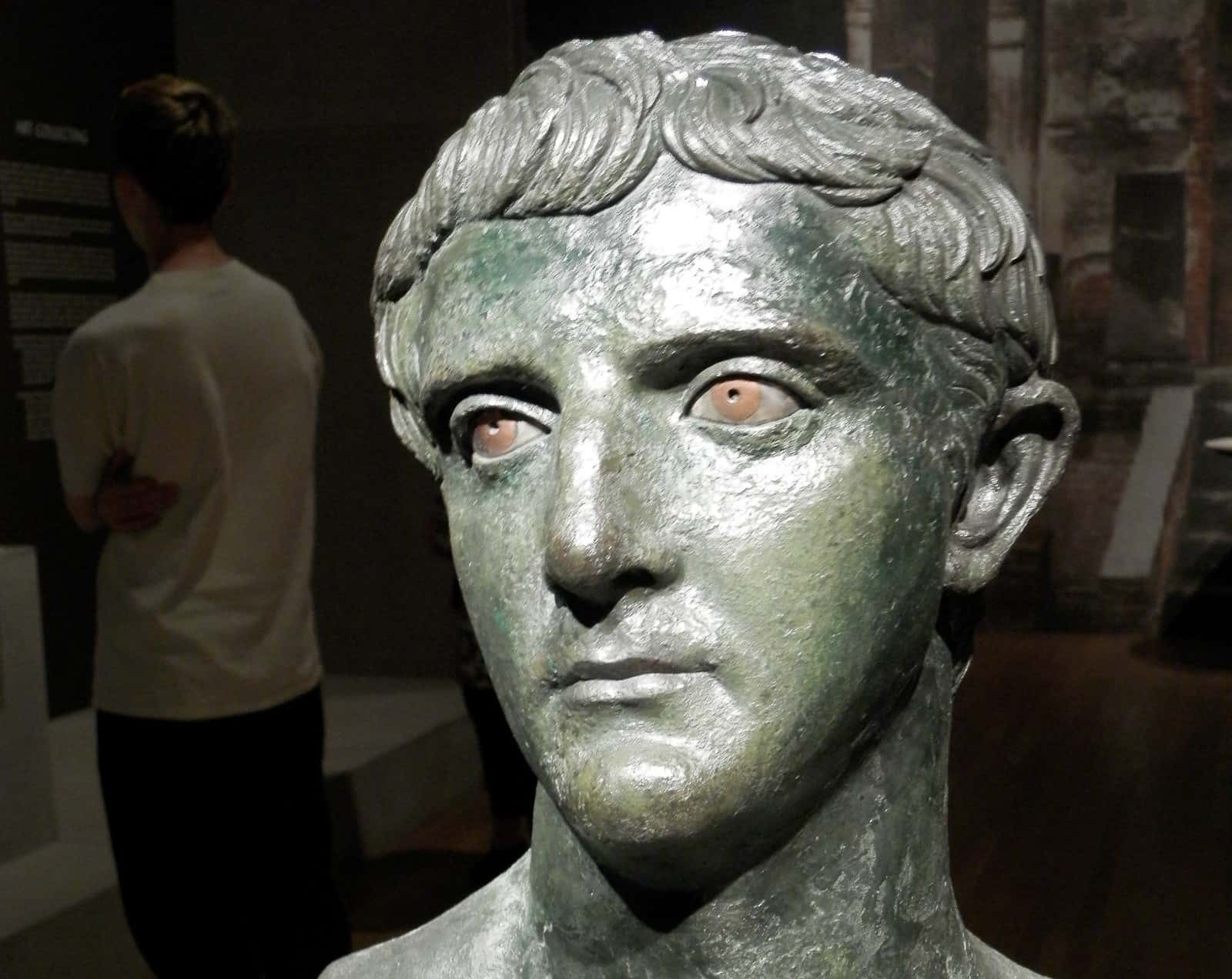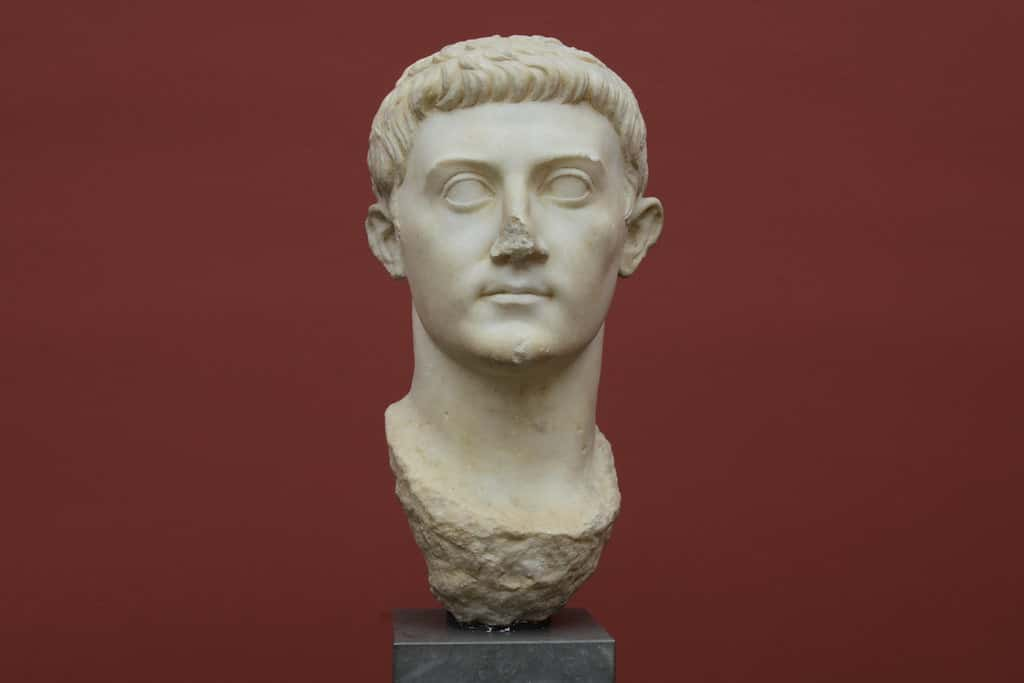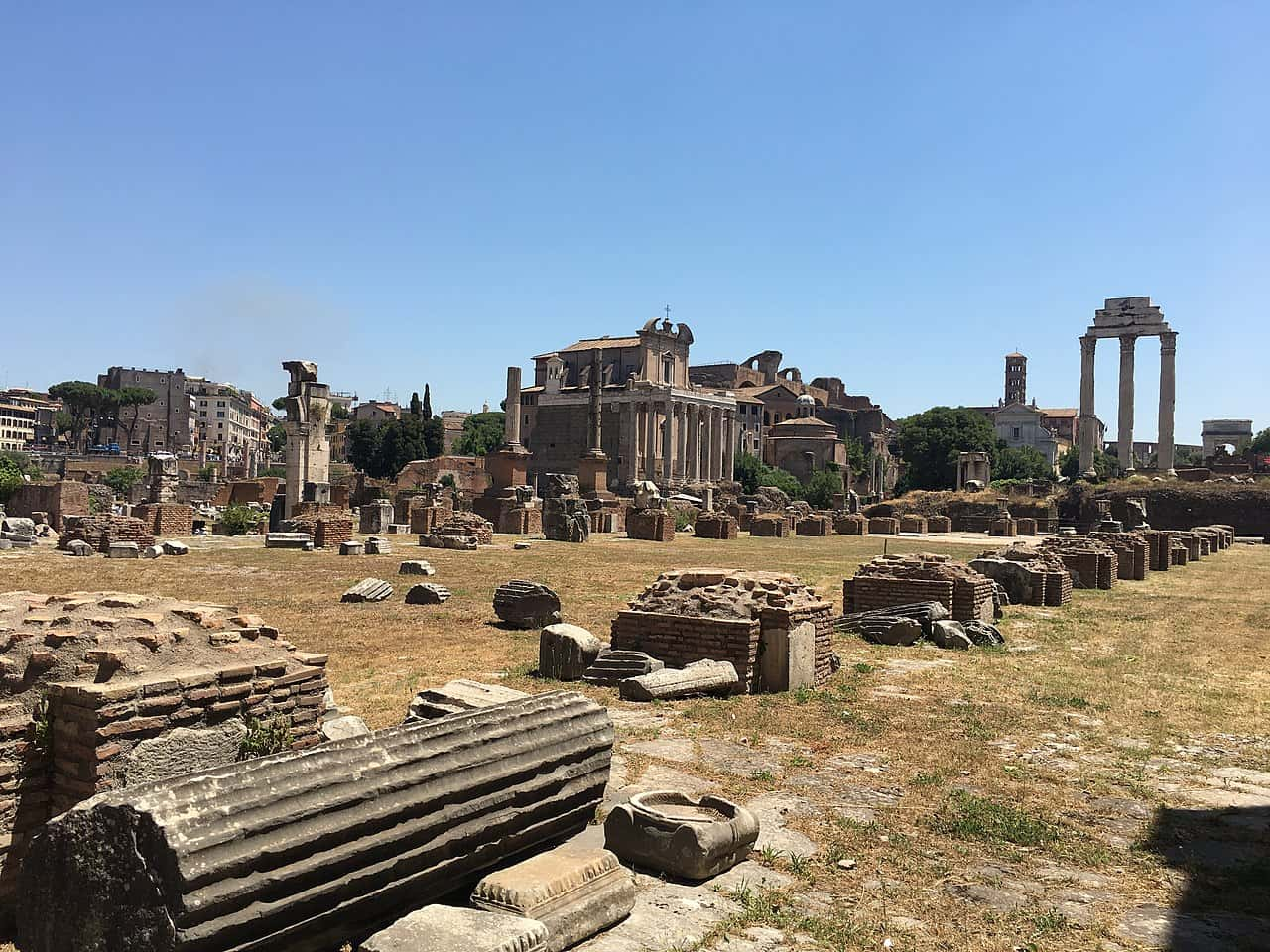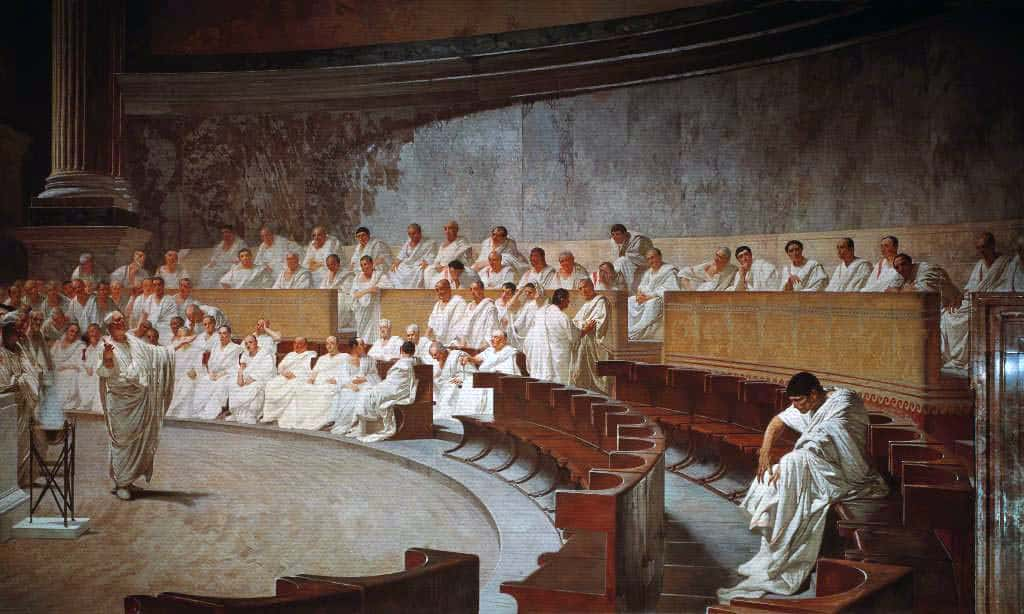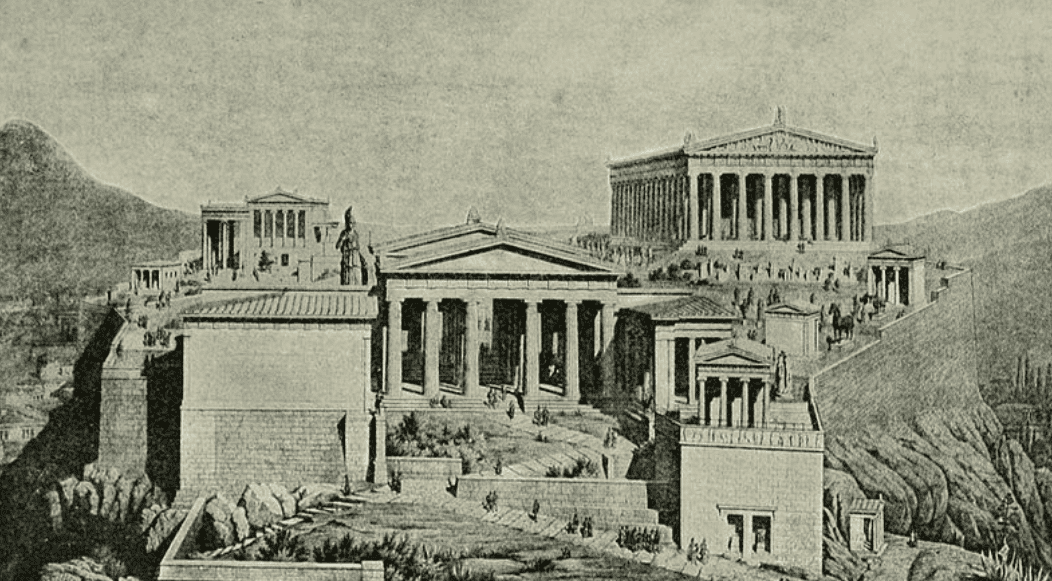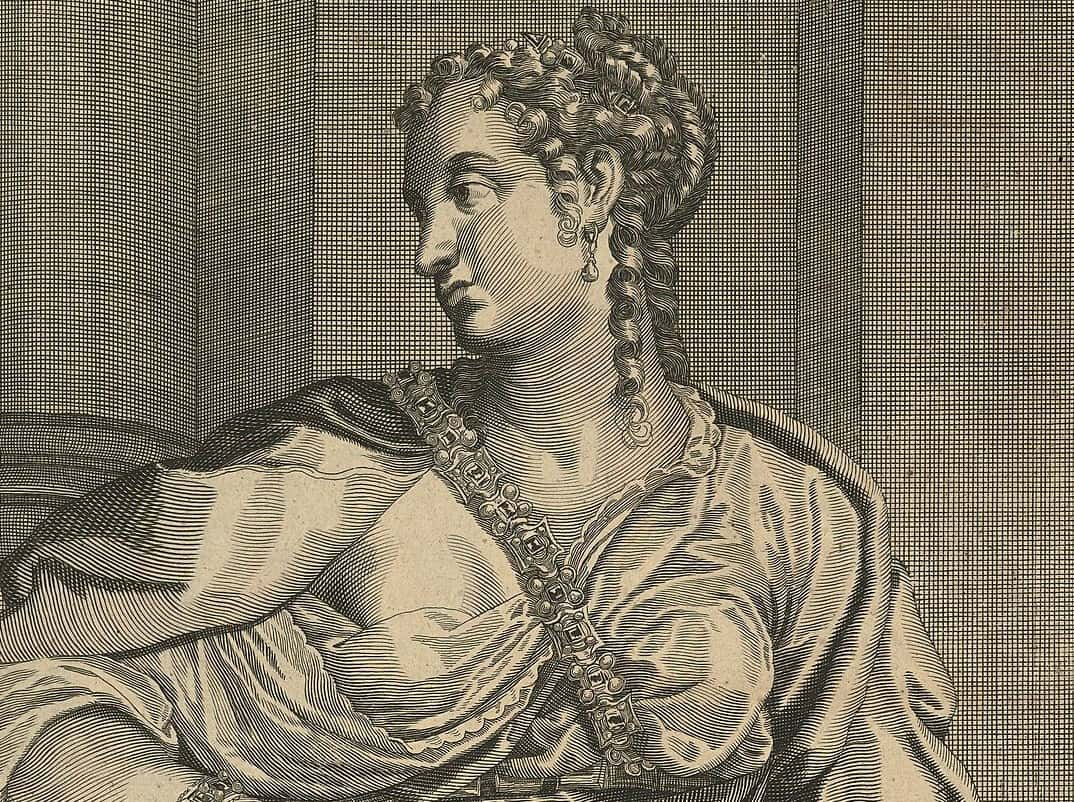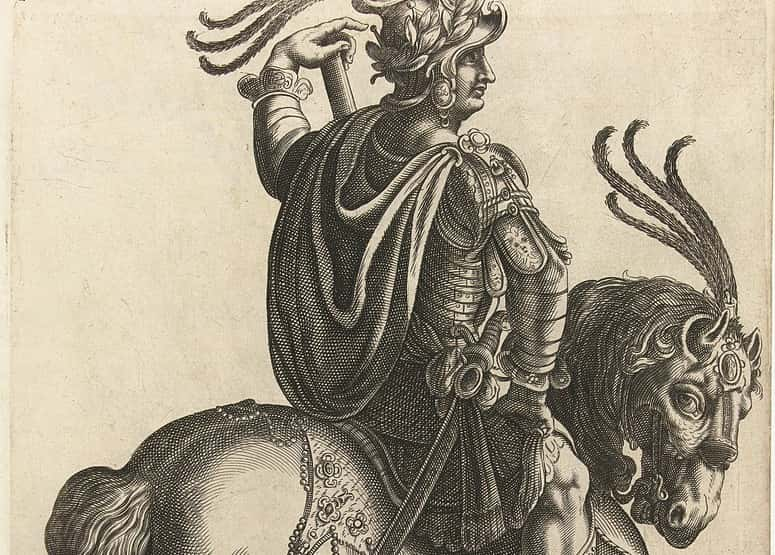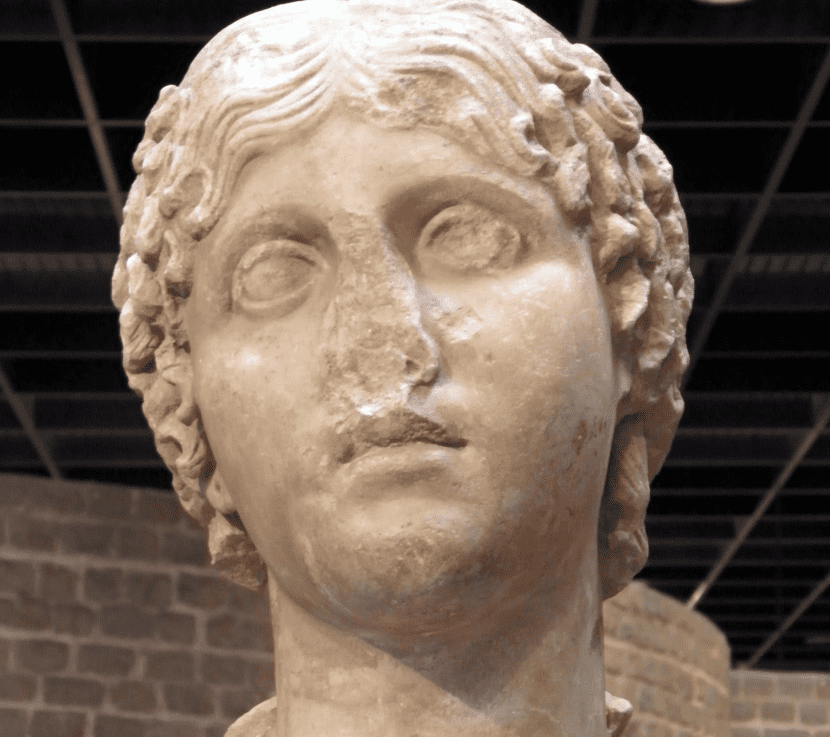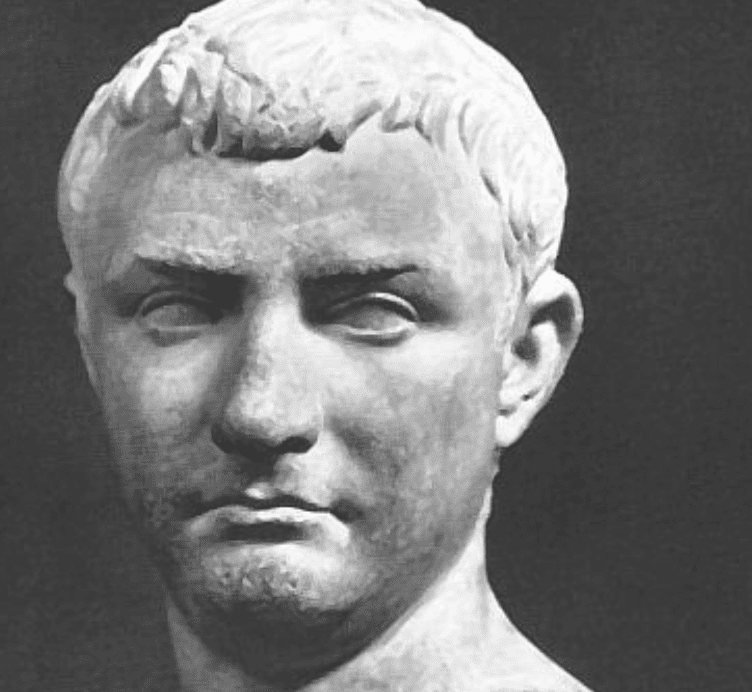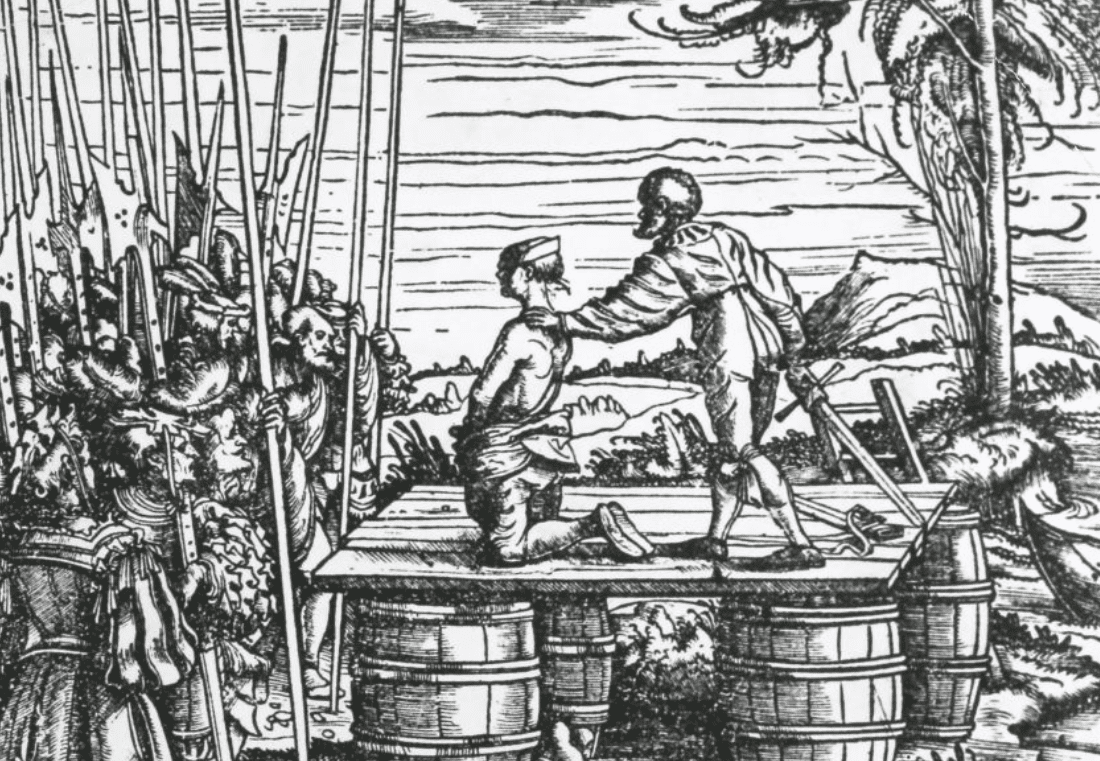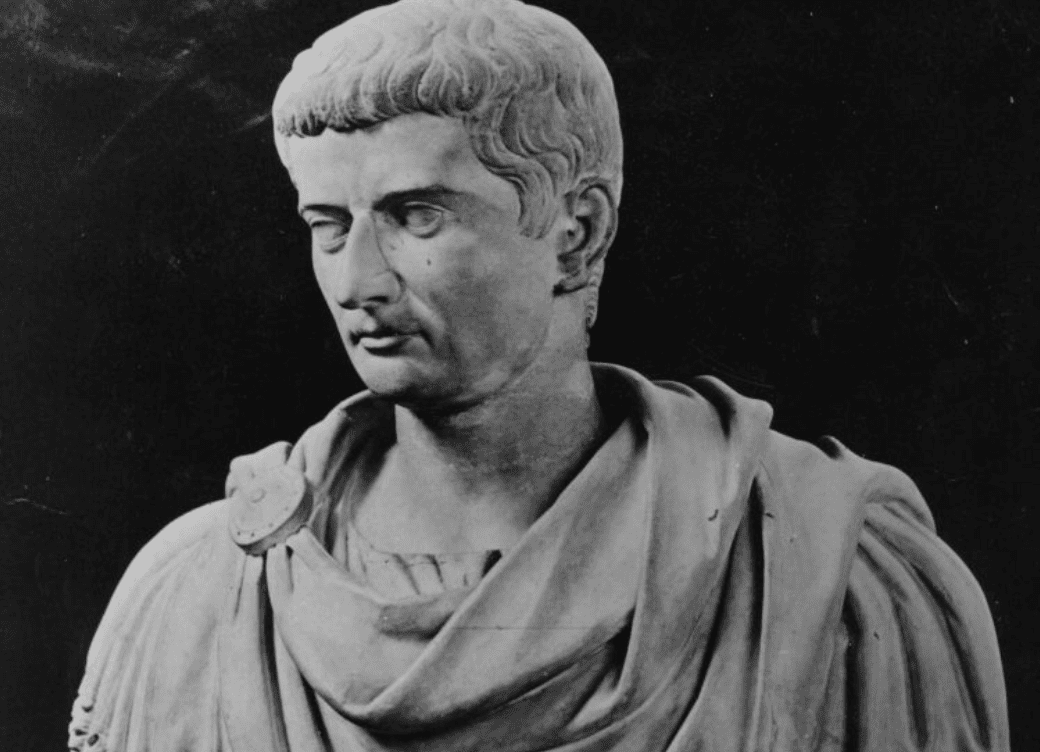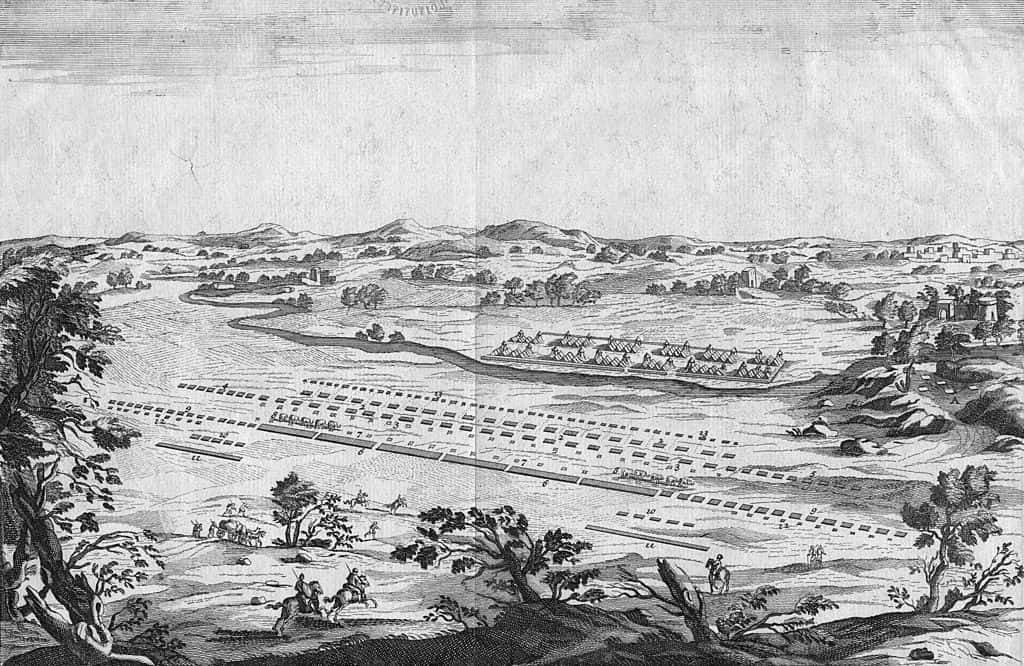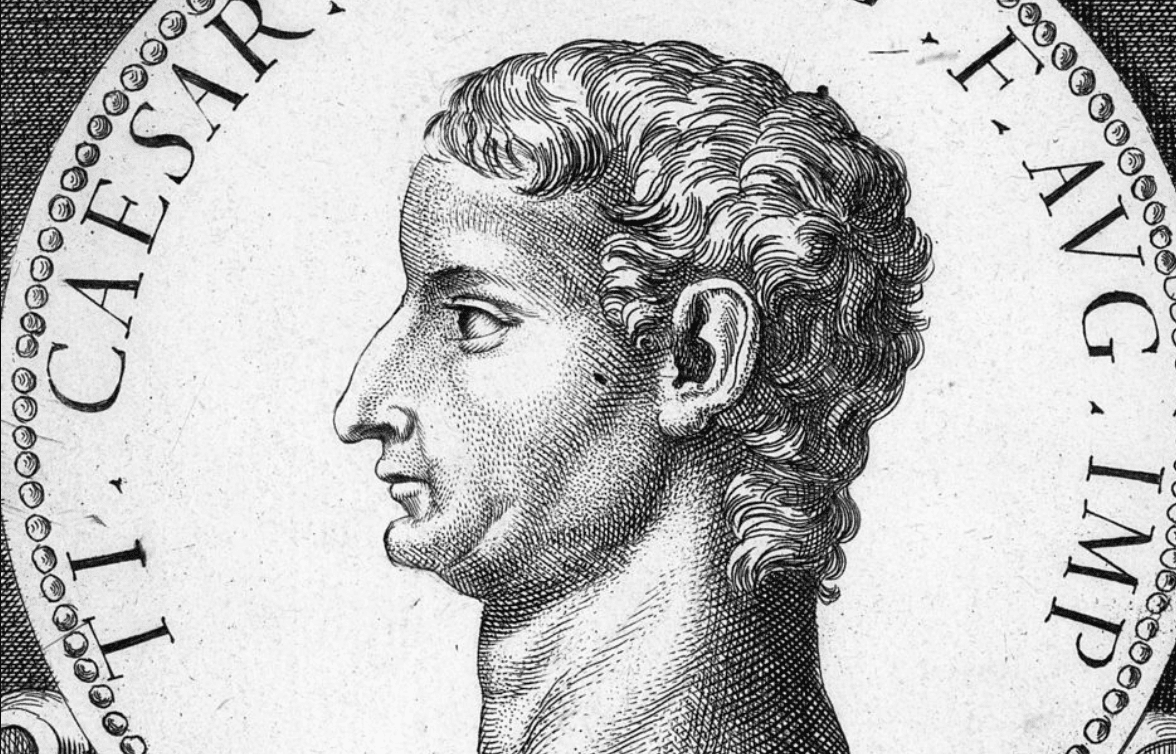We’ve already talked about Augustus, the first Emperor of Roman history, and just how long and influential his rule was. Following that up would be very difficult for anyone, but it was especially problematic for Tiberius. Like many emperors after him, he has not been looked upon favorably, but it’s indisputable that Tiberius is actually much more complex than Nero or Caligula. Here are 45 complex facts about Tiberius.
1. An Emperor by Any Other Name
Tiberius went through a serious name change during his life. He was originally given the birth name Tiberius Claudius Nero, after his biological father. Later, when he was adopted by Augustus, he took on the name Tiberius Julius Caesar instead.
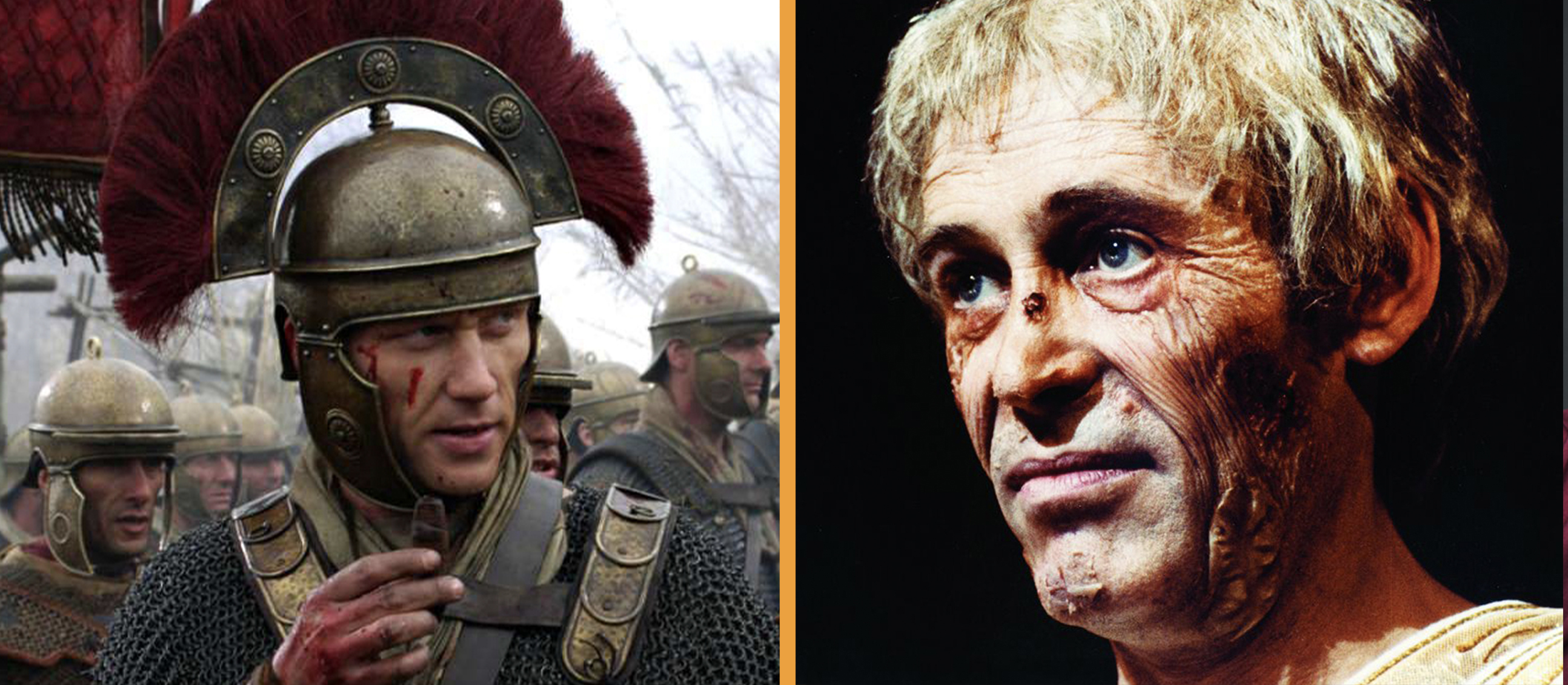
2. Long Live the Emperor
Tiberius reigned as emperor from 14 AD until 37 AD—to be more specific, 22 and a half years. While this wasn’t as long a reign as that of Augustus, it was still longer than any subsequent emperor’s rule until the reign of Antoninus Pius about a century later.
3. Welcome to the World
Tiberius was born on November 16, 42 BC in the city of Rome. He was the oldest son of Tiberius Claudius Nero, a prominent Roman politician, and Livia. He also had a younger brother named Nero Claudius Drusus—more on him later.
4. Mature Before Your Time
Tiberius grew up fast. He was just nine years old when his biological father passed on, and he ended up delivering the eulogy himself. Historians considered Tiberius to be “sullen” and even antisocial—who could blame him? These traits continued into adulthood.
5. Witness to Brutality
Tiberius was 12 years old when he rode in a chariot alongside Augustus during a triumphant parade which celebrated Augustus’s brutal victory over Mark Antony and Cleopatra at the Battle of Actium.
6. Was I So Bad?
The great irony of Tiberius’ terrible reputation is that if he wasn’t so paranoid and bloody-minded, his legacy would be up there with some of the best emperors in Roman history. While he certainly put many people to the sword, Tiberius avoided getting Rome tied up in unnecessary wars or expensive campaigns, preferring diplomacy and reinforcing the empire’s borders. By the end of Tiberius’ reign, the imperial treasury held nearly 3 billion sesterces!
7. A Brutal Roman Version of the Apprentice
Around 23 BC, Tiberius’ stepfather, Augustus, fell gravely ill and nearly lost his life. This prompted a panic over the question of succession, as Augustus had no sons of his own and had named no heirs. As a result, Tiberius and his younger brother Drusus were among the other young men groomed to potentially succeed Augustus.
8. Know Your Family
Tiberius was a member of the Julio-Claudian dynasty, which consisted of the first five emperors of the Roman Empire: Augustus, Tiberius, Caligula, Claudius, and Nero. However, none of these men were connected by primogeniture. The dynasty is called Julio-Claudian after the two primary families to which these five emperors belonged (the Julia and the Claudia).
9. What Did He Look Like?
Historians weren’t kind to Tiberius when it came to his looks. While he is described in the histories as having been very tall and broad-shouldered, things get negative from there. His nose was very hooked in form, his complexion was unflattering, and he had a manner of speaking that was slow.
10. Climbing the Ladder
Because he was Augustus’s successor, Tiberius held high political office in ancient Rome. Even though he was five years too young for the eligible age to become consul, Tiberius was allowed to stand for election. Isn’t nepotism great?
11. Providing Closure
One of the most prestigious accomplishments of Tiberius as a military leader involved his campaign into Parthia. Years before, a large Roman army was annihilated in Parthia at the Battle of Carrhae. Many Roman legion standards, considered sacred objects within the army, were lost on that expedition. Tiberius was able to recover several of them and bring them back to Rome.
This helped heal the wounds left by that disaster’s memory and brought Tiberius much popularity.
12. Late Bloomer
Due to the longevity of Augustus’ life and reign, Tiberius was already a mature 55 years old when he became emperor.
13. Blood Brothers
Nero Claudius Drusus was Tiberius’ younger brother, and the two were very close throughout their lives. They not only fought alongside each other on campaigns, but Tiberius broke an old Roman code by naming his firstborn son Drusus after his brother. It was expected of Romans to name their firstborn sons after their fathers or grandfathers.
14. He Ain’t Heavy, He’s My Brother
Drusus was one of the most promising army leaders of his lifetime, becoming the first Roman commander to invade the German lands. However, Drusus’ life was cut short when he fell from his horse in 9 BC. The accident proved fatal, and he perished at age 29. Tiberius traveled to be at his brother’s side before he passed on.
15. A Nephew to be Proud of
If you thought Drusus was a promising figure, then his son (and Tiberius’ nephew) Germanicus was even more renowned. Germanicus was only six years old when his father passed on, and he was subsequently adopted by Tiberius as part of a condition to become the heir of Augustus. Germanicus became a highly acclaimed military figure at a young age.
His turning of failures into successes made him very popular with the Roman people.
16. Pulling a Real Kendall Roy
In 6 BC, Tiberius made a shocking withdrawal from the highly prestigious position that he held in Rome as Augustus’ heir by sailing for the distant island of Rhodes. He remained there for eight years. This was a disaster for the succession, as Augustus was in his late 50s, and the only other heirs he could call upon were in their teens, and in no position to assume the position of emperor if Augustus perished abruptly.
17. How Petty Can You Get?
Several stories have been attached to Tiberius’ withdrawal from Rome by a variety of historians. In relation to Augustus’ succession crisis, some writers claimed that Augustus begged Tiberius to stay, even faking an illness to guilt him into staying in Rome. This failed, as Tiberius left as soon as Augustus “recovered".
In contrast to that, Tiberius allegedly regretted it and asked several times for Augustus’ permission to return to Rome, which Augustus spitefully withheld.
18. What We’ve Got Here is a Failure to Communicate!
When Tiberius first became emperor, he attempted the same strategy which had served Augustus so well when he assumed the role of emperor. This strategy involved him humbly refusing the requests of the Senate to assume that mantle. However, Tiberius’ modesty alienated people rather than won them over. People thought he was vague and sarcastic.
The Senate ended up distrustful of Tiberius.
19. This is Getting Dark
Tiberius’ father, Tiberius Claudius Nero Sr., had at one point fought against Augustus before that man was emperor. Augustus forcing Tiberius Sr. to divorce his wife was likely way more personal than we first thought!
 Imperium: Augustus (2003),Rai Fiction
Imperium: Augustus (2003),Rai Fiction
20. Too Humble for Worship
Unlike Augustus before him, and several emperors after him, Tiberius refused to let people venerate him as if he was a living god. Only one solitary temple was constructed in his honor. It was located in the ancient Greek city of Smyrna, which currently resides in modern-day Turkey.
21. The Dangers of Boredom
One thing that the histories seem to agree on is that while he was on Rhodes refusing to be emperor, Tiberius underwent a negative change in his overall character. He became especially withdrawn with nothing to do on that island. The less kind histories of Tiberius claim that it was here where his perversions first manifested, but we’ll go into that later.
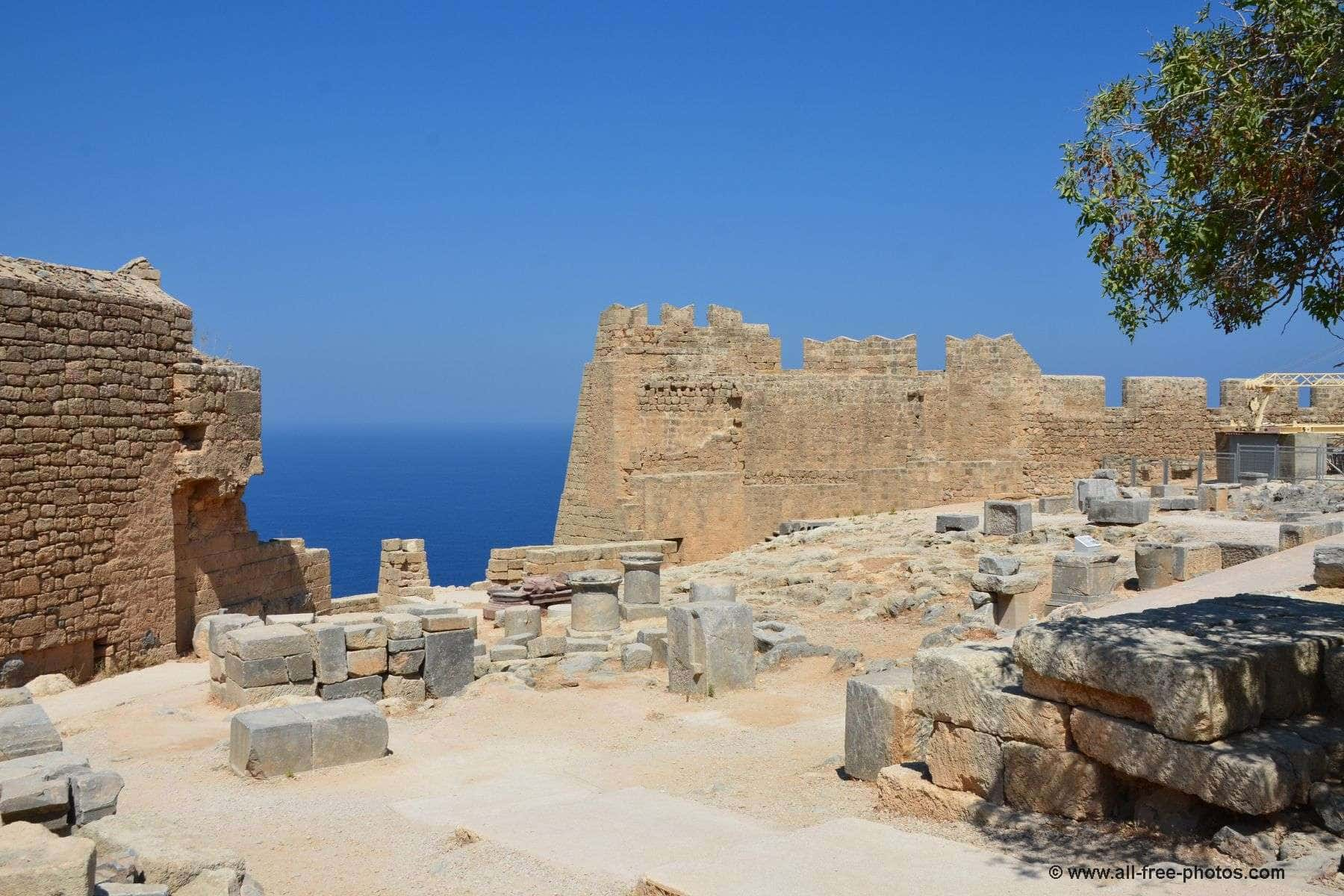 All free photos
All free photos
22. Love and Marriage
Tiberius’ first wife was named Vipsania Agrippina. Although the match was partly arranged, Tiberius was head over heels in love with Vipsania. They were wedded in 19 BC and their son, Drusus Julius Caesar, was born five years later.
23. Smear Campaign
In fiction, just as in life, Tiberius is often placed in a peripheral position compared to the emperors that preceded and succeeded him. Additionally, Tiberius is often portrayed negatively. To give the most lauded example (the novel I, Claudius), Tiberius is a hated figure who goes mad with power, ordering executions of his enemies.
24. Lost Masterpiece? That’s Debatable
Allegedly, Tiberius took up the pen and wrote an autobiography before he passed on. However, this volume has been lost to time, along with any potential secrets that Tiberius chose to reveal.
25. Cursed Heirs
As we mentioned earlier, in order to become emperor, Tiberius was obligated to adopt his nephew, Germanicus, as his heir, even though Tiberius had a biological son. However, tragedy struck when both his heirs had early graves. Germanicus perished under highly mysterious circumstances in 19 AD. Tiberius’s son also passed on in 23 AD. This moment marked a serious negative turn in Tiberius’ reign as emperor.
26. Augustus Steps In
In 12 BC, Augustus’ daughter, known as Julia the Elder, became a widow. Augustus then insisted that Tiberius divorce Vipsania and marry Julia instead. Tiberius was, understandably, very upset about this command, but he went ahead with it anyway—but then things got worse. Vipsania was pregnant with Tiberius’ second child at the time, and the child didn’t survive infancy.
27. I Need My Space
Following the loss of his son in 23 AD, Tiberius seemed to have lost any interest in ruling, as he retreated to another island. This time, it was the island of Capri, where Tiberius retired to a villa-complex where he spent most of his time, while still being an emperor in name.
28. Tiberius the Mannis
Some of you reading this list will doubtless notice something familiar about Tiberius’ life, and there’s a good chance it’s because you’ve seen Game of Thrones. George R.R. Martin has gone on record saying that Tiberius was a direct inspiration for the character Stannis Baratheon. Like Tiberius, Stannis is almost universally loathed despite being a competent ruler.
29. A Tortured Romeo
Although Tiberius was forced to divorce Vipsania, he never got over his feelings for her. There was allegedly one occasion where he saw Vipsania in the streets and practically began to cry as he followed her around longingly. As a result, Augustus arranged things so that the two wouldn’t ever be in the same vicinity so as to stop Tiberius from having another emotional breakdown.
30. Dysfunctional with a Capital D
To add insult to injury, Tiberius and his new wife absolutely despised each other. Julia thought that Tiberius was beneath her standards, and she embarked on rampant extramarital affairs in a way that only a daughter of the emperor could do in that society. Many historians cite this deeply unhappy marriage as the main reason why Tiberius sulked on Rhodes for years.
 Imperium: Augustus (2003),Rai Fiction
Imperium: Augustus (2003),Rai Fiction
31. As the Good Book Says…
The most terrible part of Tiberius’s legacy is likely that he was the ruling emperor of Rome when Jesus of Nazareth was tried by the Romans and sentenced to die by crucifixion. While he is mostly referred to in the Bible as “Caesar,” he is mentioned by name in Luke 3:1.
32. Starting a Bad Trend
Speaking of Jesus, Tiberius saw Judaism and Christianity as direct threats to Rome. As a result, Jews were either drafted into the Roman army or else expelled from Rome. Christians, meanwhile, were oppressed in subsequent years by several Roman emperors.
33. Princip by Proxy
While Tiberius embarked on a self-imposed exile on Capri, he left most of his responsibilities to a man named Lucius Aelius Sejanus. Sejanus, enjoying his newfound power, went on a rampage of purge trials to remove anyone who threatened that power. This even included Germanicus’ widow and sons, who were exiled and perished under mysterious circumstances.
34. Let Their Blood Stain the Soil
By 31 AD, it seemed as though Tiberius was completely done with his responsibilities and Lucius Sejanus had completely taken over in all but name. This wasn’t enough for Sejanus, though, because he allegedly began a love affair with Tiberius’ niece and conspired to usurp Tiberius.
 Imperium: Augustus (2003),Rai Fiction
Imperium: Augustus (2003),Rai Fiction
35. Not On My Watch
This came to an abrupt end that year, however. After burying his head in the sand for years, Tiberius sent a letter to the Senate, who summoned Sejanus in order to read the letter to his face. It was an order by Tiberius to have Sejanus executed immediately. This order was carried out, along with a vicious purge of all his friends and cronies.
36. Absentee
As you can imagine, Tiberius’ inaction followed by a bloody purge didn’t make him very popular. What made it worse was that Tiberius soon withdrew from public life once again. He also made no serious moves to secure an heir to himself, though it didn’t really matter at that point. The only eligible family member left by that point was none other than Caligula.
37. Cruel Vengeance
No matter how badly Augustus and his daughter Julia may have treated Tiberius, Tiberius definitely made Julia pay for it in bitter coin. In 2 BC, Augustus finally had enough of Julia’s scandalous behavior and declared her marriage to Tiberius to be null and void. Julia was forced into exile by her father to the island of Pandateria, where she wasn’t allowed any male companions or even wine, but was otherwise kept in comfortable conditions.
 Imperium: Augustus (2003),Rai Fiction
Imperium: Augustus (2003),Rai Fiction
38. Cruel Vengeance Part II
That all ended when Tiberius became emperor. Allegedly, Tiberius coldly cut off any allowance and supplies to Julia so that she starved to death in abject poverty. Frankly, this was one of those situations where nobody emerges as a good person.
39. What Happened to “Death Forgives All?”
Unlike Augustus, Tiberius received no divine honors following his demise. In fact, people hated him so much that a mob paraded the street shouting “To the Tiber with Tiberius!” In case you’re confused, it was customary in ancient Rome to throw the bodies of criminals into the river rather than getting a proper burial.
40. Let Me Rest
Thankfully for Tiberius, he did eventually get cremated and was quietly laid to rest in the Mausoleum of Augustus, where he rested undisturbed until the Sack of Rome in 410 AD.
41. Approaching Deeply Uncomfortable Territory…
You might be wondering what Tiberius was doing on the island of Capri when he was supposed to be an emperor. The Roman historian Suetonius alleged that Tiberius spent his time indulging in highly depraved intimate activities.
42. Did Anyone Question the Butler’s Involvement?
Speaking of the mysterious passing of Tiberius’ nephew Germanicus, the golden boy of Rome, it was highly suspected that Germanicus was poisoned. Germanicus himself claimed before his end that he’d been poisoned by Gnaeus Calpurnius Piso, the governor of Syria. Another sinister theory was that Tiberius had Piso slain.
43. Cold-Blooded
Tiberius was only three years old when his mother Livia caught the eye of Emperor Augustus. Even though both were married to other people, Augustus, decided that he wanted Livia for himself and went to disturbing lengths to get her. He not only divorced his then-wife, Scribonia, he also forced Tiberius’ father to divorce Livia.
44. Rest in the Opposite of Peace
Tiberius passed on in 37 AD at the old age of 77. According to Tacitus, however, his demise was prematurely announced. When it seemed that he’d stopped breathing, Caligula wasted no time in celebrating his new position as emperor. During the feast, however, it was reported that Tiberius had risen again! Fearing what Tiberius would do in his wroth, the party guests fled for the hills, even while one of Caligula’s allies fatally smothered Tiberius amidst all the chaos.
45. Conspiracy Theories Abound
But that may not have even been the darkest part of that day: Roman historians even suspected that Tiberius’ initial brush with death was due to a poisoning attempt by Caligula to speed along his inheritance.



